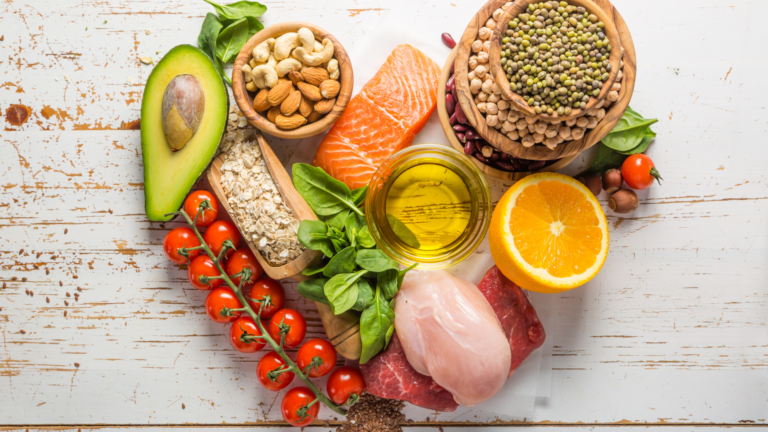An IBS flare can make you feel powerless, sidelined, and completely out of control. Today, we’re here to give you that power back!
One of the cool things about a low FODMAP diet is that it’s not a game of perfect. FODMAPs don’t cause damage and can even benefit your gut microbiome. A low FODMAP diet is all about finding the balance between limiting your diet enough to keep your gut calm and relaxing it enough to enjoy food and your life. This can be a delicate balance. Whether accidental or intentional, pushing the limits can impact your gut comfort. This is totally normal. And also, for the times that you misjudge or seem to be more sensitive, you’ll want an action plan to get comfortable again, which is exactly what we will cover here.
What is a flare?
IBS tends to fluctuate. Giving you good days and bad days. When we talk about a flare, we are referring to the bad days where your symptoms are worse than usual and are interfering with your day. Symptoms may include bloating, cramping, wind and altered bowel movements. Flares usually last a few hours or a day, but it can take a few days before you feel “normal” again. If your flares are lasting days or weeks on end, that’s a flag to book in with one of our specialist dietitians to troubleshoot.
What causes a flare?
IBS doesn’t have one specific cause. Instead, there are several different factors that influence IBS symptoms making them better or worse. The most common triggers that make IBS worse are certain food choices (these are different for different people too), stress, poor sleep and hormones.
Without further ado, here is my 3 step action plan to manage an IBS flare and get you back to enjoying food and life as quickly as possible
Step 1: Reset your gut
This is where you go back to your baseline diet and eat bland easy to digest foods
Bland food besties to include:
- chicken and rice
- mashed potato
- plain low fodmap toast
- gentle soup.
- Check your Monash app and go with whatever food you find gentle on the gut and soothing to eat.
Irritants to limit:
- Your personal trigger foods e.g. FODMAPs
- Gut irritants e.g. spicy foods, fatty foods, fizzy drinks, coffee and alcohol.
Step 2: Be kind to yourself
A critical part of IBS management is the Gut-Brain Connection. How you think about your symptoms directly influences how you experience them. Being miserable or over analysing will often make you feel worse.
Start by reminding yourself that FODMAP is not a game of perfect. You do not have to always follow it perfectly. And that’s ok. Accidentally (or intentionally) eating something higher FODMAP may increase gut sensations or alter gut transit, but this will pass. It’s not a sign of failure and does not mean that you have to restart everything from the beginning. If anything, your gut microbiome will thank you for it.
Calming and soothing thoughts and activities will also calm the gut brain axis and potentially also reduce symptom severity as well. The gut brain axis is a big part of IBS, you can read more about it and its influence here.
If you feel you need a day on the sofa with Netflix and a cat cuddle, go for it. Other ideas that help with symptoms and your mood include:
- Meditation or gut hypnotherapy to calm the gut brain axis
- Yoga and stretching can help with digestion and trapped gas
- A walk outside for fresh air can reset the mindset
Step 3: Treat your symptoms
Ok, lets treat those symptoms. There are lots of options depending on what symptoms you are experiencing:
- Heat packs for bloating and a sore tummy are way under appreciated.
- Walking and light exercise helps move trapped gas
- Peppermint (Mintec) and simethicone (Degas) relax smooth muscle and aid in gas clearance.
- Ginger and Iberogast can help with bloating, reflux and nausea
- Fibre acts like a sponge in the gut soaking up excess water and bulking stool. This helps with both diarrhoea and constipation. If you are on the sluggish side, make sure to drink enough water too.
- Gastro stop or Imodium can help with more severe diarrhoea
- Movicol and Osmolax help with constipation by attracting water into the bowel.
- Buscopan is an antispasmodic that can help reduce cramping.
Nb: the advice here does not replace the advice of your healthcare team. Please speak to your doctor, pharmacist or IBS dietitian about what medication or supplement options are suitable for your needs.
Final thoughts:
FODMAPs simply pass through the digestive tract. They go in one end and come out the other, creating gas and attracting water on the way. The result being in IBS type symptoms in some people. The good news is that they usually leave your system within a day or two. While the worst of the symptoms usually passes by this time, it may take some people a bit longer to feel “normal” again.
If you’re currently struggling with frequent or unexplained flares, feeling powerless doesn’t have to be your reality. The good news is that with the right plan, you are in control. If you’re ready to take back control, Joanna is trained and experienced in all areas of IBS and food sensitivity. She has helped thousands of people just like you pinpoint their triggers and resolve digestive issues. If you are ready to take back control book an appointment today.








One Comment